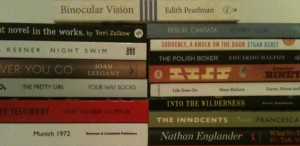Success!
It wasn’t that long ago that I mentioned new courses being offered under the auspices of the Tikvah Fund. I also mentioned that I’d applied for admission to one of those courses.
I’m delighted to share that I have been admitted to the course I applied for: “Zionist Thought and Statesmanship,” taught by Professor Allan Arkush. (I was also tempted by Dara Horn’s “When Bad Things Happen to Good People: Divine Justice and Human Creativity in Jewish Literature,” but that course meets during the day, and I couldn’t swing that with my work schedule.)
If you’re curious, the syllabus for Professor Arkush’s course is online. I can’t wait to get started!

